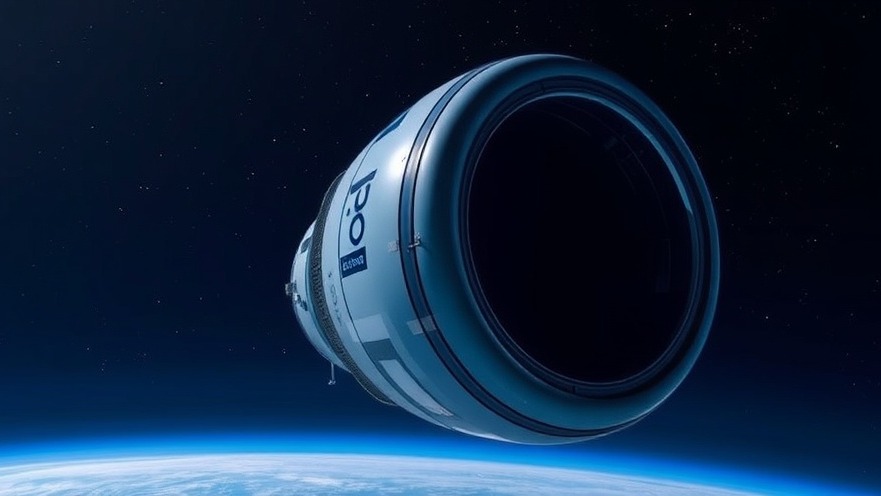
Blue Origin’s Groundbreaking NS-32 Mission: Another Leap into the Cosmos
Blue Origin, the space exploration company founded by Amazon’s Jeff Bezos, continues to push the boundaries of commercial space travel. On May 31, the company successfully launched its New Shepard mission NS-32, furthering its goal of making space more accessible to ordinary people. This mission is not just a technical feat; it reflects a growing movement towards democratizing space exploration, showcasing a diverse group of astronauts who embody the spirit of adventure and discovery.
Meet the Astronauts: A Diverse Crew Pioneering New Frontiers
The NS-32 mission featured six unique passenger profiles, each bringing their own story and background to the journey. Among them is Aymette (Amy) Medina Jorge, a STEM teacher from Galveston, Texas, who aims to inspire the next generation of scientists and engineers. Her involvement highlights the potential of space travel to serve as a teaching tool, igniting curiosity about science, technology, engineering, and mathematics in young minds.
Another notable member is Dr. Gretchen Green, a radiologist with a specialization in women’s imaging. Her presence on this journey emphasizes the increasing recognition of women's roles in science and technology fields, potentially inspiring future female leaders in medicine and engineering. Their adventure is not just a personal triumph but a collective leap forward for representation in traditionally male-dominated sectors.
Other passengers include Jaime Alemán, a Panamanian attorney and former ambassador to the U.S.; Jesse Williams, a Canadian entrepreneur; and Mark Rocket, a technology leader from Christchurch, New Zealand. Each of these astronauts embodies the spirit of exploration and innovation, helping to illustrate that space travel can and should include individuals from all walks of life.
The Journey Continues: A Step Forward for Commercial Space Travel
The NS-32 mission builds on Blue Origin’s previous missions, such as NS-31, which famously carried pop star Katy Perry and talk show host Gayle King into space. This trajectory demonstrates that space tourism is shifting from elite-only experiences toward broader demographics that include educators, professionals, and entrepreneurs, thus legitimizing commercial space operations.
As interest in commercial space travel grows, it opens up a myriad of opportunities—from educational outreach to business ventures in space. Each successful mission lays the groundwork for future innovations, while simultaneously igniting public interest and generating discussions about the implications of extended human presence in space.
Looking Ahead: The Future of Space Exploration
Blue Origin is not alone in its ambitions; the commercial space race now features multiple players, with companies like SpaceX and Virgin Galactic also making significant strides. This competition is likely to drive innovation, reduce costs, and create a vibrant ecosystem for space travel and exploration. The mutual goal among these companies is to make space travel a common experience, akin to commercial air travel.
As further advancements are made, one can foresee a future where space hotels and interplanetary missions become reality, serving not just as tourist attractions but as platforms for scientific research and human expansion into the solar system. The latest mission adds to the hopeful narrative that space exploration can catalyze collaborative efforts in science, technology, and education.
Conclusion: The Next Steps in Space Exploration
The NS-32 mission stands as a testament to human ingenuity and the pursuit of knowledge beyond our planet. It invites us to consider not just the thrill of space but the broader implications for education, entrepreneurship, and collaboration across the globe. As we continue to push into this new frontier, let us remain curious and committed to making space accessible for all.
This journey of exploration doesn’t end here. Individuals inspired by this mission can continue to support the movement toward greater inclusivity in science and exploration. If you’re interested in getting involved, consider local community outreach programs that emphasize STEM education, or keep an eye on upcoming missions where you might see your own opportunities to engage with space exploration.
 Add Element
Add Element  Add Row
Add Row 



 Add Row
Add Row  Add
Add 


Write A Comment